9 Easy Juice Blends That Support a Balanced Diet
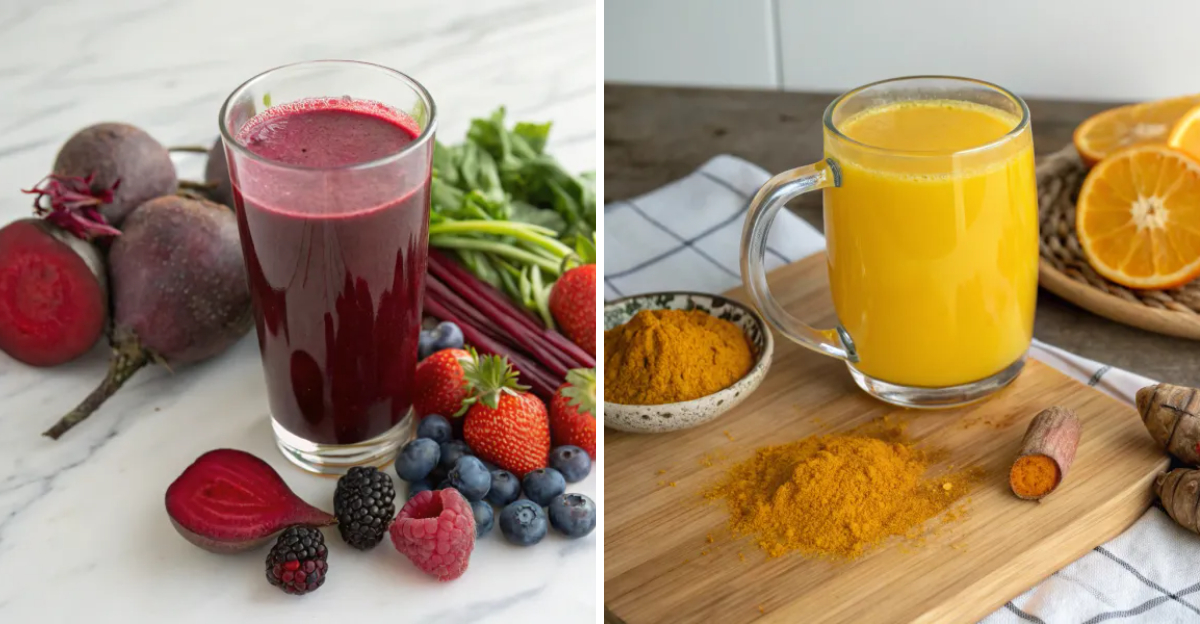
Consuming fresh juice offers a straightforward method to integrate more nutrients into a daily regimen. Individuals often find it challenging to consume adequate fruits and vegetables; however, juicing simplifies the process, allowing for multiple servings in a single serving. Appropriate juice mixtures can supply vitamins, minerals, and antioxidants, supporting bodily health and sustained energy levels.
1. Green Apple Spinach Blend
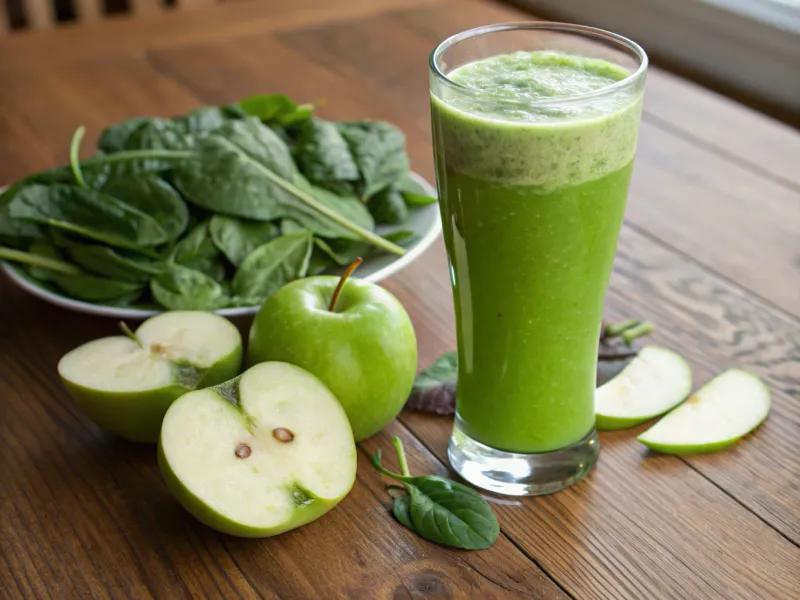
Spinach, blended with sweet green apples, offers a palatable juice option. This combination provides iron sourced from spinach and fiber from the apples. Adding fresh lemon juice enhances the flavor and supports iron absorption. The natural sweetness of the apples masks any potentially bitter tastes from the spinach. This blend is often well-received by children, often resembling apple juice in taste.
2. Watermelon Cucumber Mix

This refreshing blend provides hydration and essential nutrients during warmer months. Watermelon, with its high water content and natural sugars, aids in replenishing fluids lost through perspiration. Cucumber contributes a cool, crisp flavor, alongside additional water and minerals. These components are naturally low in calories, yet rich in vitamins A and C. This juice is suitable as a post-exercise beverage or a cooling afternoon refresher.
3. Carrot Ginger Immunity

Carrots contribute natural sweetness and beta-carotene, which the body uses for vitamin A, supporting eye and skin health. Fresh ginger introduces a spicy warmth, potentially aiding digestion. This pairing has a history in traditional practices, potentially bolstering the immune system. Ginger may also assist in reducing bodily inflammation. It’s advisable to begin with a small amount of ginger due to its intensity, adjusting to personal preference over time.
4. Pineapple Kale Twist
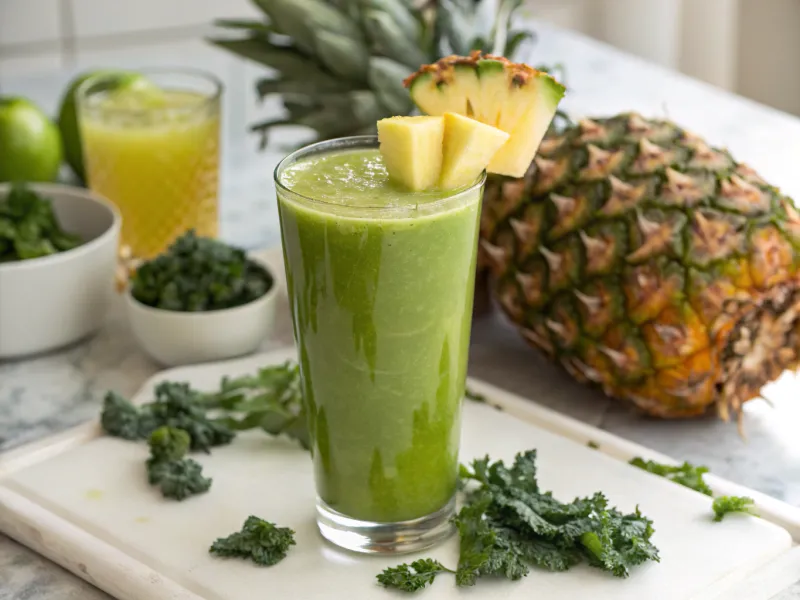
Kale, known for its nutritional benefits, can sometimes present a bitter taste. Pineapple offers a solution, introducing a tropical sweetness that alters the kale’s flavor profile. Pineapple includes enzymes that assist in digestion. Kale contributes calcium, vitamin K, and antioxidants. The combination results in a smooth and palatable drink. Frozen pineapple chunks can substitute fresh ones, offering a colder and more refreshing experience, especially suitable for warmer weather.
5. Beet Berry Blend
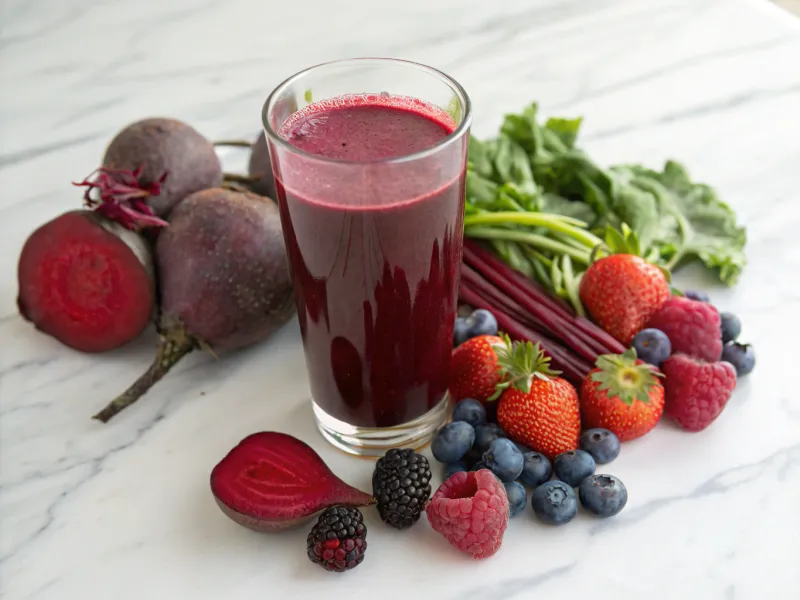
This juice blends beets and mixed berries for a healthful beverage. Beets, known for their potential to support heart health and blood flow, can leave a temporary stain. Mixed berries, such as blueberries, strawberries, and raspberries, contribute natural sweetness and antioxidants. The berries also help temper the earthy flavor of the beets. This deep red juice offers nutrients that assist the body in combating harmful substances and supporting wellness.
6. Orange Turmeric Elixir
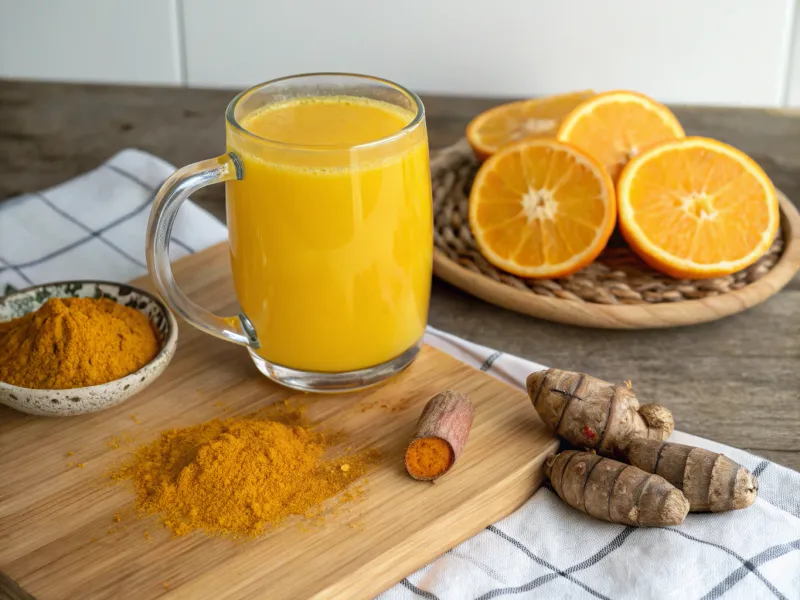
Turmeric, a spice with a long history in medicinal practices, is recognized for its anti-inflammatory benefits. Orange juice contributes vitamin C and natural sweetness, complementing the spice’s earthy flavor. A small amount of black pepper enhances the body’s ability to absorb turmeric’s compounds. The resulting beverage presents a gentle, bright flavor with a touch of warmth. This mixture is suitable for morning consumption, offering nutrients that may aid in reducing inflammation and supporting joint well-being.
7. Pomegranate Cherry Blend
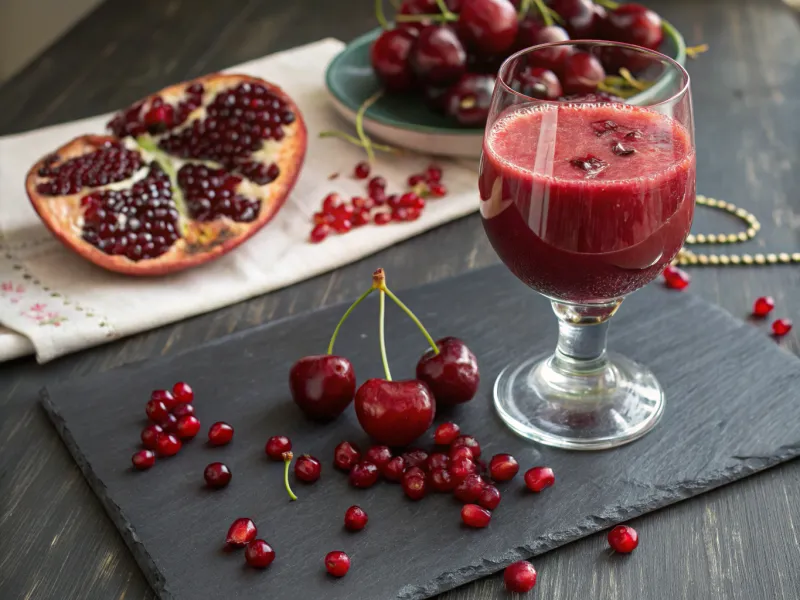
This recipe blends the flavors of pomegranate and cherries. Pomegranate seeds offer a tart flavor and heart-healthy compounds. Cherries contribute natural sweetness and nutrients. Both fruits are rich in antioxidants, which aid in cell protection. The mixture yields a drink with a balance of tartness and sweetness. Fresh or frozen cherries can be used. Pomegranate juice is an alternative if preparing whole fruit is inconvenient.
8. Celery Lime Mineral Mix
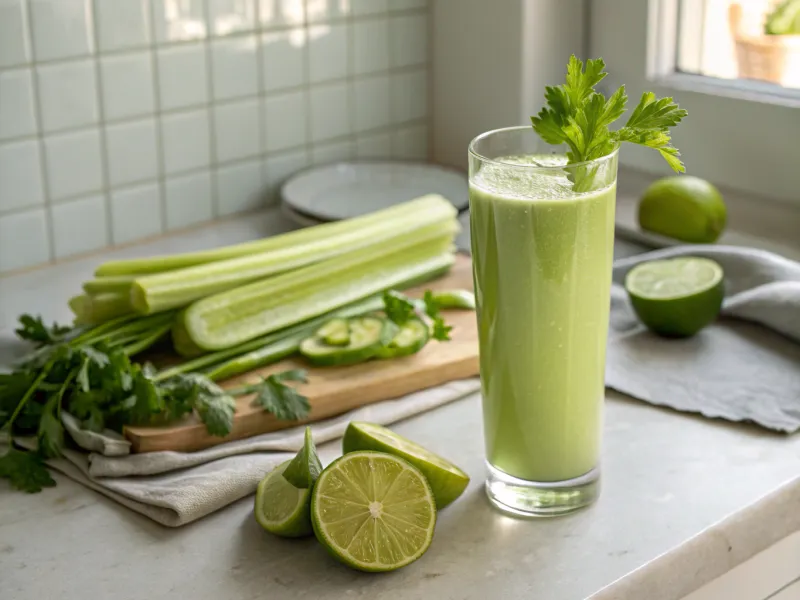
Celery juice has gained popularity within the wellness community. It contains sodium and potassium, which support fluid balance. Lime juice complements celery’s flavor, adding vitamin C and citrus fragrance. This blend serves as a sports drink substitute. Some consume it on an empty stomach, believing it aids digestion and influences energy levels.
9. Mango Coconut Water
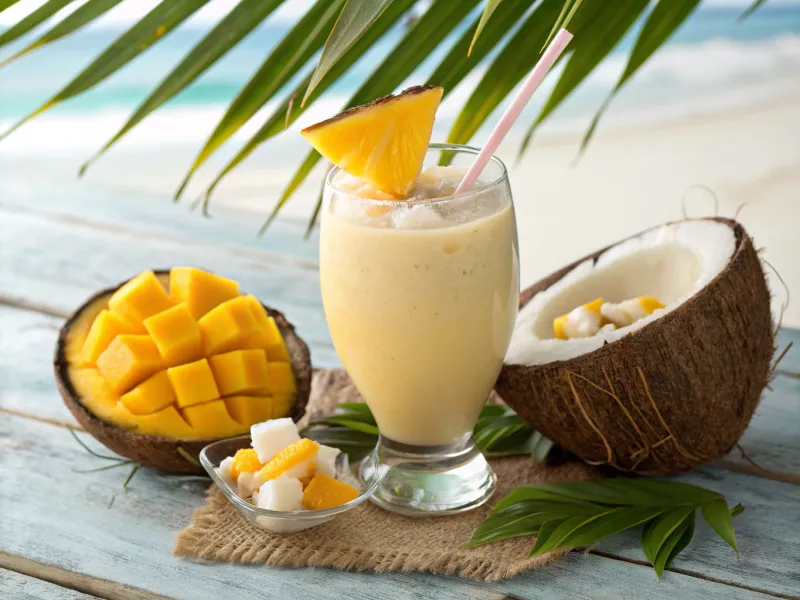
This beverage blends the flavors of mango and coconut water. The mango contributes tropical sweetness and vitamin A, while coconut water offers natural electrolytes, avoiding added sugars or artificial components. Coconut water includes potassium, which aids in proper muscle function and may prevent exercise-related cramping. Mango enriches the drink with fiber and antioxidants, supporting general well-being. Utilizing frozen mango chunks enhances the drink’s coolness and thickness, resulting in a smoothie-like consistency that is still light enough for quick consumption.
